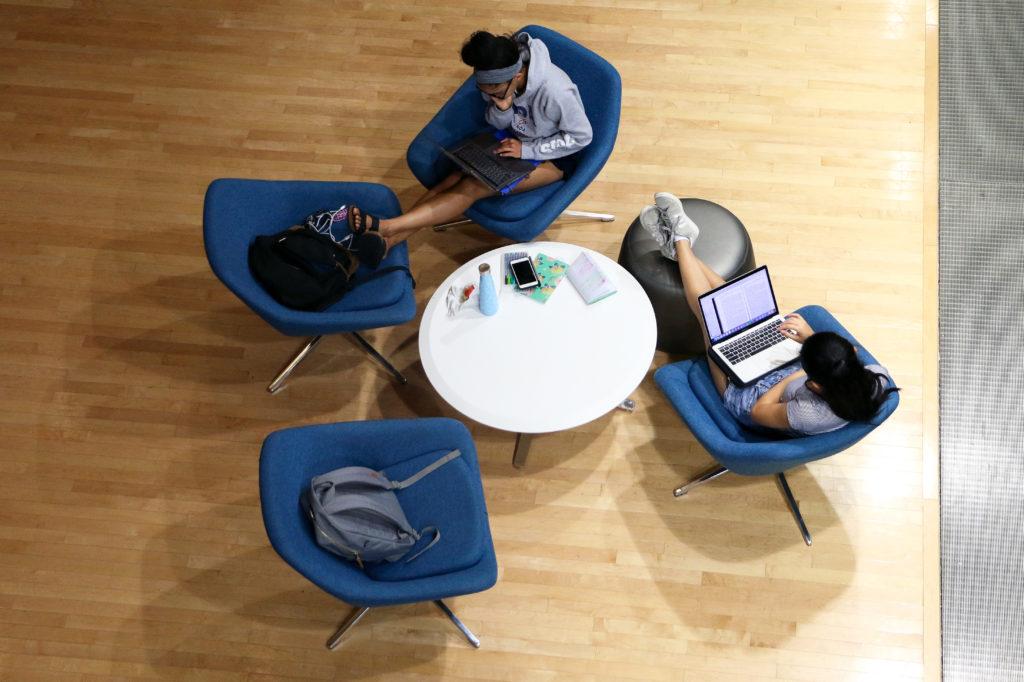Updated: Sept. 29, 2019 at 5:39 p.m.
Three years ago, a senior sat in a calculus class, thinking that he could coast through his first-year courses without studying – just like he did in high school.
But when the work piled up, the student, who spoke on condition of anonymity to preserve his academic reputation, said he continued to slack off – and failed the class. But two years later, officials implemented a new policy allowing students to retake courses in which they received a D+ or lower during their freshman year.
The student decided to retake the course under the policy last fall – and received an A.
“The second time I took it, you can’t mess up twice – that’s just embarrassing,” he said. “So I really put a lot of effort into it, I really just wanted to prove to myself, to my parents, to everyone that I’m not just bad at math – that it was just me being stupid freshman year.”
The senior is one of more than 500 students who used the first-year forgiveness policy in its first year to retake classes in subjects like statistics and psychology – giving them a second chance in courses where they initially slacked off.
“Since its inception, students across all class years have benefited from the policy,” Deputy Provost Terry Murphy said in an email. “The first-year forgiveness policy was designed to provide students with the opportunity to relearn fundamental materials and have a better transition to college.”
Murphy said that 5 percent of undergraduates – about 550 students – retook 91 different courses across several subject areas, including economics and chemistry, since the policy went into effect last academic year. At the beginning of this semester, 35 students submitted first-year forgiveness requests to academic advisers to retake classes this fall.
Murphy declined to say whether officials would make any changes to the policy this semester or next year.
The policy first went into effect last fall after the Faculty Senate approved the measure in February 2017. Widespread support for the policy followed Student Association advocacy for the plan two years ago.
Former SA Executive Vice President Thomas Falcigno, who led SA efforts in 2016 to enact the policy, said that since the measure has been in place, several students who used it reached out thanking him, saying it boosted their overall GPA after retaking a course.
“Maybe you don’t even know your major – you’re trying to explore courses – and if you’re taking a heavy course load freshman year, you could be taking classes that you might not do well in,” Falcigno said.
When the policy was first passed, the Faculty Senate mandated that after three years, faculty members would analyze the number of students retaking a course. Faculty will use the data in 2020 to determine whether the policy should expand to allow students to retake more than one course from their first year.
Falcigno said he hopes that after administrators collect the three-year data, they will allow freshmen to retake two or three classes for credit rather than one – a policy offered by some of GW’s peer institutions, like the University of Southern California and Boston University.
In interviews, students who have used the policy – who all spoke on condition of anonymity to protect their academic reputations – said that in its first official year, the measure wiped their transcript clean of a bad grade that would have otherwise tanked their GPA.
A junior majoring in international affairs said she used the policy to retake a political science course last fall after she failed the class her freshman year. The student said she wasn’t doing well in several classes, so she devoted more time to other courses and failed the political science course. When she used the policy, the student received a B in the class the second time around.
“I basically decided I am going to fail this class and that is OK, and I’ll take it next semester and use first-year forgiveness,” she said. “I did it and it worked out really, really well for me.”
A junior and former student said she used the policy to clear up her transcript before applying to different universities and transferring out of GW. The student said she failed an introductory chemistry class her freshman year after taking the same class in high school.
“In high school, I didn’t study for anything,” she said. “College is very different – it’s a lot more personal responsibility – so I think it helped me get a chance to realize that without having to keep an F on my transcript.”
This post was updated to reflect the following correction:
The Hatchet incorrectly reported that students retook courses across 91 different subject areas. Students retook 91 courses across multiple disciplines. We regret this error.





